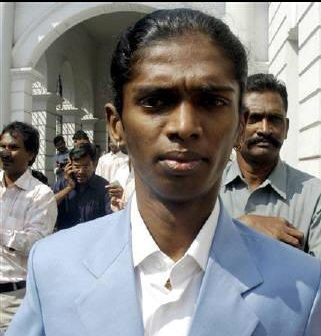Bhubaneswar will host the country’s first-of-its-kind sports literary festival titled the ‘Ekamra Sports Literary Festival’ in association with Emerging Sports November 2-3 ushering in a new era in the sports history of the state as well as the country. The mega event will offer the sports lovers of the Temple City an opportunity to learn as well as experience interesting unheard stories from the finest sportspersons and sports journalists in the world. A host of celebrities from across the globe will share their experiences and interact with the audience on the occasion.
Athletes who represent their country are always proud of themselves. The country too cherishes their achievements and successes. However, some female athletes having a difference in hormone level have been shamed for no fault of theirs.
Hyperandrogenism, which is characterised by excessive levels of androgen (male sex hormones such as testosterone) circulation in the female body, has drawn the attention of many during the past few years.
The issue of hyperandrogenism came to the fore after South African Caster Semenya came under the IAAF radar. Following her victory at the 2009 World Championships, questions were raised regarding her gender. Having shattered her previous 800m best by four seconds at the African Junior Championships just a month back, Caster’s quick improvements came under scrutiny. The combination of her rapid athletic progression and her appearance culminated in the IAAF asking her to take a sex verification test to ascertain her gender.
Though the IAAF, which believed that the test would reveal a dramatic breakthrough that is usually related to drug use, couldn’t find any drug in her sample, The gender test results were never published officially, but some results were leaked in the press and were widely discussed, resulting in claims that Semenya had an intersex trait.
It was the first time that there was some hype over the hyperandrogenism case. Later, Odisha sprinter Dutee Chand too faced some serious problems related to hyperandrogenism.
Apart from the duo, another Indian athlete from Tamil Nadu Santhi Soundarajan also faced similar issues. Soundarajan won a silver medal in the women’s 800m at the 2006 Asian Games in Doha. However, she underwent a sex test shortly afterwards, and the results indicated that she does not possess the sexual characteristics of a woman.
While such sex tests are not mandatory for competitors, IAAF can request that contenders undergo the tests at any time, and include intensive evaluations by a gynecologist, a geneticist, an endocrinologist, a psychologist and an internal medicine specialist.
Reports initially suggested that Soundarajan’s upbringing in impoverished conditions, where she reportedly only started eating proper meals in 2004, could be a factor behind the test result. In a video petition in 2016, Santhi disclosed that she has been told that she has androgen insensitivity syndrome.
Five days after the news report, Santhi said that she received a call from Lalit Bhanot, a former joint secretary of the Indian Olympic Association, who told the Tamil girl that she cannot compete in sports anymore. Soon after the results of the sex test were published, she was stripped of her silver medal.
Santhi returned to her village in humiliation and promptly fell into serious depression. Even Santhi’s application to the state-run Railways for a job before the Games was turned down because the athlete failed a medical test. In September 2007, Soundarajan was reported to have attempted suicide, reportedly by consuming a veterinary drug at her residence. A friend found her vomiting uncontrollably and took her to a hospital. The attempt was blamed on gender, economic, and sports pressure in India.
A couple of months later, Santhi took up coaching, starting a training academy at her home district of Pudukkottai and became a temporary athletics coach with the regional government.
Earlier this month, Santhi alleged caste-based and gender-based discrimination by her colleagues at the state-run Sports Development Authority of Tamil Nadu (SDAT). An FIR has been registered by the Chennai police under the Scheduled Castes and the Scheduled Tribes (Prevention of Atrocities) Act, but no arrests have been made yet.
Santhi’s complaint is against Rajan Abraham, her colleague at the SDAT, who, she alleges, has continually used caste and gender-based slurs to discriminate against her. In her complaint, Santhi wrote, “Rajan and a few other colleagues have been harassing me based on caste and gender for many years. When I compete in races, Rajan mentions my caste name and asks why ‘dogs’ like us need sports. He also used to abuse me asking how a ‘man’ can run with other women. He said I have fooled everyone.”
Santhi’s allegation reveals systemic discrimination at the state’s premier sports institution. A Dalit woman, Santhi further alleges that Rajan used to threaten her, asking for her caste name. “He used to threaten me saying, let’s see how long you last here… When I used the washroom, he would loudly call out to the men. He would ask his students to file sexual harassment complaints against me. He had planned to have me dismissed from my job,” she writes.
So her presence, along with Madeleine Pape and Gopi, for a debate on the topic ‘Hyperandrogenism – One word, too many opinions’, would be an interesting experience for everyone.
